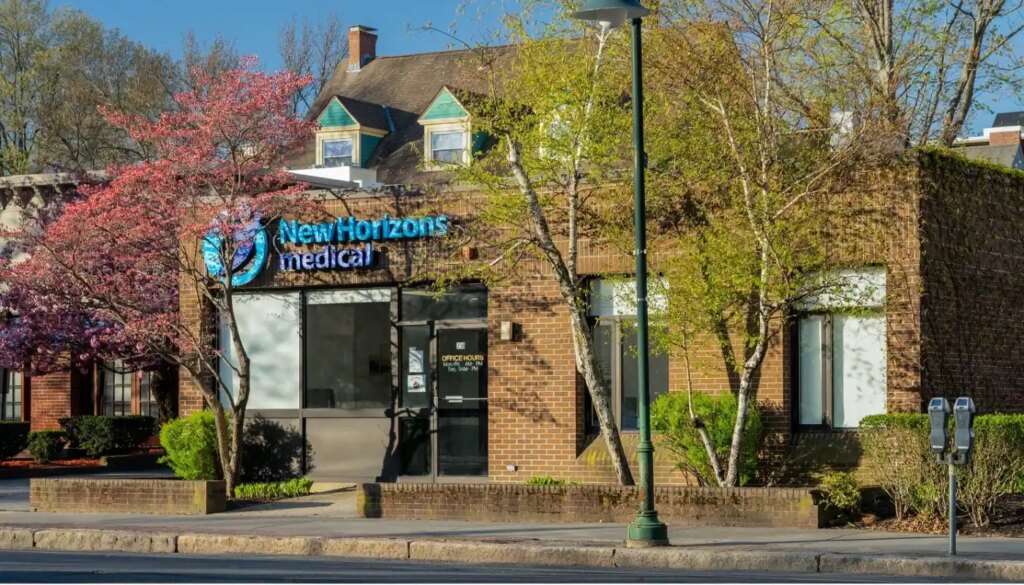




Finding the Right Meth Treatment Centers for You
Meth addiction can be a life-destroying force, shattering the lives of those it affects and their loved ones. The road to recovery may seem daunting, but with the right meth addiction treatment and support, it is possible to regain control and thrive. In this blog post, we will delve into the complexities of meth addiction, explore treatment options, and offer guidance for supporting a loved one through the recovery process at meth treatment centers. Together, we can make a difference in the fight against meth addiction.
Methamphetamine, commonly known as meth, is a powerful and dangerous drug that wreaks havoc on the body and mind. Weight loss, dental problems, and a weakened immune system are just the tip of the iceberg when it comes to the detrimental effects of meth addiction.
But what makes meth so addictive? The answer lies in the brain and the impact of meth on dopamine levels, a key neurotransmitter involved in motivation and reward.
When someone uses meth, the drug floods the brain with dopamine, creating intense feelings of pleasure and euphoria. This surge in dopamine levels not only reinforces the pleasurable effects of meth but also contributes to compulsive drug-seeking behavior, even in the face of negative consequences. As a result, meth addiction can quickly take hold, trapping users in a vicious cycle of craving and use.
The flood of dopamine caused by methamphetamine use also disrupts the brain’s natural reward system, making it increasingly difficult for users to feel pleasure from everyday activities. Over time, this can lead to a state of anhedonia, or the inability to experience pleasure, further driving the cycle of addiction and making recovery an uphill battle.
Recognizing the signs of meth addiction is crucial for early intervention and treatment. Physical changes, such as a thinning body and rotting teeth, can signal meth use and addiction. Additionally, psychological side effects, including changes in behavior, may become apparent as the addiction progresses.
If you suspect a loved one is struggling with meth addiction, be aware of the early warning signs. Demonstrating at least two of the following symptoms within a one-year period may be indicative of a problem: increased energy and alertness, decreased appetite, rapid speech, insomnia, and heightened aggression.
By identifying these signs early on, you can help your loved one seek the necessary help and support for their addiction.
Chronic meth use has far-reaching consequences that extend beyond the immediate physical and psychological effects. Over time, meth addiction can lead to lasting changes in the brain’s pleasure and reward centers, which may not be completely reversible. These changes can give rise to a host of mental health issues, such as anhedonia (the inability to experience pleasure) and drug-induced psychosis, which can resurface during times of stress even after achieving sobriety.
One invaluable resource for those in recovery from meth addiction is support groups, such as Narcotics Anonymous and Crystal Meth Anonymous. These groups offer a sense of community and understanding, connecting former meth users with others who have faced similar struggles and can provide ongoing support throughout the recovery process. Participation in support groups can be a vital component of maintaining sobriety and preventing relapse.
With the complexities of meth addiction in mind, it is crucial to choose the right treatment path to ensure lasting recovery. A variety of treatment options are available, from inpatient rehab programs to outpatient services, each with its own set of benefits and drawbacks tailored to the individual’s needs and circumstances.
In the following sections, we will explore these treatment options, helping you make an informed decision about the best course of action for yourself or a loved one struggling with meth addiction.
When considering treatment options for meth addiction, it’s important to weigh the pros and cons of inpatient and outpatient programs. Inpatient treatment provides 24/7 counseling and support in a controlled environment, offering a higher level of care and structure for those with severe addictions or co-occurring disorders. However, inpatient treatment may not be suitable for everyone, as it often requires a significant time commitment and may be more expensive than outpatient options.
On the other hand, outpatient treatment offers the flexibility to remain at home and maintain work or family obligations while receiving treatment for meth addiction. This option may be more suitable for individuals with milder addictions or those who have already completed an inpatient program.
Ultimately, the decision between inpatient and outpatient treatment should take into account personal factors such as the severity of the addiction, any obligations, and the individual’s support system.
Detoxification, or detox, is a critical first step in the meth addiction treatment process, addressing the physical withdrawal symptoms and laying the foundation for further treatment. During detox, patients can expect a variety of physical and psychological benefits, such as improved sleep, reduced anxiety, and increased mood.
Medical professionals play a vital role during the detox process, closely monitoring vital signs and administering medications to ensure patients remain comfortable and stable as they progress through withdrawal. Depending on the severity of the addiction and the individual’s specific needs, medications such as Benadryl, trazodone, antidepressants, or benzodiazepines may be prescribed to help manage symptoms.
After completing treatment, ongoing support is essential for maintaining sobriety and preventing relapse. Aftercare and support can include individual counseling, group therapy, 12-step programs, peer support groups, and other educational programs tailored to the individual’s needs and goals.
Aftercare and support groups provide a fantastic opportunity to connect with others in recovery and receive ongoing guidance, fostering a sense of accountability and motivation to stay on track with one’s recovery goals. Additionally, aftercare and support can help individuals recognize and address potential triggers or issues that could lead to relapse, ensuring a successful and lasting recovery.
In addition to detox and aftercare support, various therapeutic approaches play a key role in meth addiction treatment. These therapies help recovering meth users uncover the root causes of their addiction and provide the emotional support needed to address those issues.
Let’s take a closer look at some of the most effective therapeutic approaches used in meth addiction treatment, including cognitive-behavioral therapy (CBT), narrative therapy, and family therapy.
Cognitive Behavioral Therapy (CBT) is a widely used and effective therapy for treating meth addiction. CBT focuses on identifying and modifying dysfunctional thoughts, emotions, and behaviors that contribute to addiction, helping individuals develop healthier coping strategies and manage their emotions more effectively.
Beyond its direct impact on addiction, CBT has been found to help reduce cravings and provide emotional support during the recovery process. By addressing the root causes of addiction and providing the tools necessary to maintain sobriety, CBT has proven to be a valuable component of meth addiction treatment.
Narrative therapy is another therapeutic approach that can help address the underlying issues behind meth addiction. This therapy encourages individuals to explore their personal life stories and the context in which their emotions, actions, and problems fit. Through this process, individuals can gain valuable insight into their own story, identify their values and skills, and make positive changes in their lives.
Narrative therapy techniques such as re-authoring conversations, externalizing conversations, and reframing conversations can help individuals gain a new, more positive perspective on their addiction and its impact on their lives. By understanding their own story and its influence on their addiction, individuals can begin to address the root causes of their addiction and work towards lasting recovery.
Family therapy is an essential component of meth addiction treatment, as it involves the participation of family members in the recovery process. This therapy aims to improve relationships among family members and address any issues that may be contributing to the person’s addiction. Family therapy sessions can provide a safe environment for open and honest communication, helping to resolve conflicts and strengthen the support system for the person in recovery.
By involving family members in the treatment process, this therapy can empower them to better support their loved one in recovery, as well as provide a secure environment to discuss any potential challenges during the recovery journey. Family therapy can be a crucial component of a comprehensive meth addiction treatment plan, offering both emotional support and practical guidance for all involved.
Financial considerations are an important aspect of meth addiction treatment, as the cost of treatment can vary significantly depending on the type of treatment and location. However, there are options available to help reduce or eliminate the financial burden of treatment, allowing individuals to focus on their recovery without added stress.
In this section, we will discuss insurance coverage for meth treatment, as well as alternative payment options and financial assistance.
Many insurance plans provide coverage for addiction treatment, including meth addiction treatment. However, the extent of coverage may vary depending on the insurance provider and the specific plan. To confirm whether your insurance covers meth addiction treatment, it’s best to contact your insurance company directly.
Some meth addiction treatment centers accept a variety of in-state and out-of-state insurance plans, potentially allowing for free or low-cost treatment depending on your policy. It’s important to research and inquire about insurance coverage at specific treatment centers to ensure you receive the best care possible within your budget.
For those without insurance coverage or who require additional financial assistance, there are alternative payment options available for meth addiction treatment. Some treatment centers offer sliding scale fees, which are based on an individual’s income and can make treatment more affordable. Additionally, grants and scholarships may be available to help cover the cost of treatment.
Public addiction treatment programs are another option for those seeking free or low-cost treatment. These programs may be available in your area and can provide essential services for those in need. It’s important to research and inquire about public addiction treatment programs, sliding scale options, and other financial assistance available to ensure you can access the help you need to overcome meth addiction.
Supporting a loved one struggling with meth addiction can be a challenging and emotional journey. In this section, we will offer guidance on how to help your loved one seek treatment, from staging an intervention to researching treatment options and practicing self-care.
By taking these steps, you can provide the support and encouragement your loved one needs to embark on their path to recovery.
Staging an intervention is a powerful way to show your loved one that you care and are committed to helping them get the support they need to overcome addiction and enter recovery. However, it can be daunting to stage an intervention alone, as meth users can become hostile or even violent when confronted. To ensure a successful intervention, it’s crucial to follow a series of steps, including educating yourself about addiction and interventions, assembling a team of supportive family and friends, and planning and practicing the intervention with care.
When staging an intervention, it’s essential to stay composed and understanding, express your thoughts sincerely, focus on the behavior rather than the individual, provide viable solutions and support, and be prepared for any possible outcome. An effective intervention can be the turning point that motivates your loved one to seek the help they need to overcome their addiction.
Once you’ve decided to help your loved one seek meth addiction treatment, it’s essential to research and select the most appropriate treatment options for their needs. Reach out to treatment centers and hospitals to learn more about their meth addiction recovery programs, and ask intake coordinators any questions you have about the treatment process. By gathering information and evaluating different treatment options, you can help your loved one find the best possible care to support their recovery journey.
Additionally, consider the types of therapy and support services offered at each treatment center, as well as any financial assistance or payment options available. Ensuring that your loved one has access to comprehensive treatment and support, tailored to their specific needs and circumstances, will greatly improve their chances of achieving lasting recovery.
As you support your loved one through their meth addiction treatment journey, it’s crucial to remember the importance of self-care. Taking care of yourself can help you stay physically, mentally, and emotionally healthy, allowing you to better support your loved one during their recovery.
Self-care can include getting adequate rest, eating a nutritious diet, being physically active, enjoying your hobbies, and connecting with your loved ones. By prioritizing your own well-being, you can reduce stress, boost your energy, and strengthen your self-esteem, making you a more effective support system for your loved one as they navigate their path to recovery.
In conclusion, meth addiction is a complex and devastating issue that requires a multifaceted approach to treatment and recovery. By understanding the intricacies of meth addiction, exploring various treatment options, and supporting loved ones through their journey, we can make a difference in the fight against meth addiction. With the right tools, resources, and support, lasting recovery is possible, and a brighter, healthier future awaits.